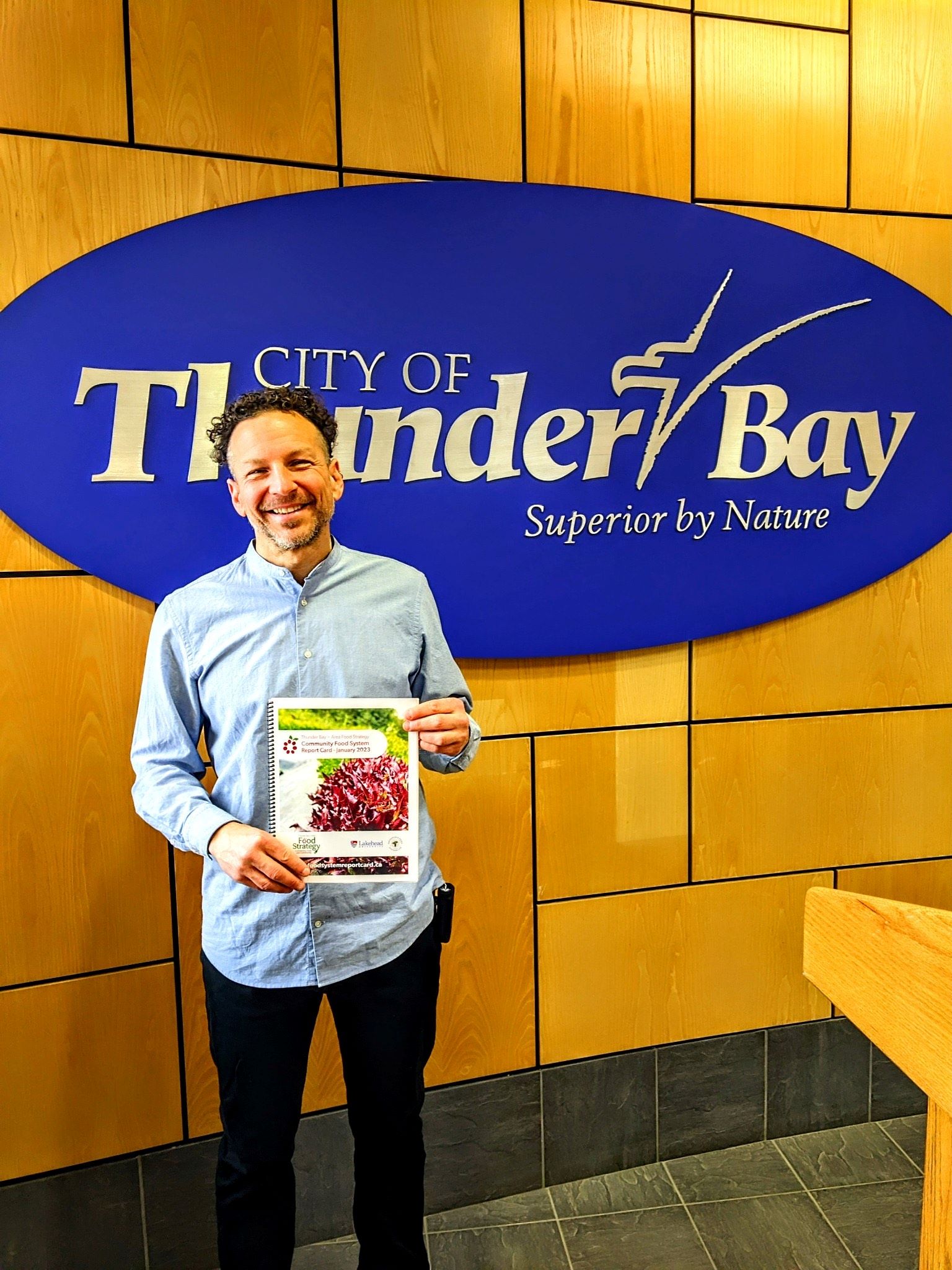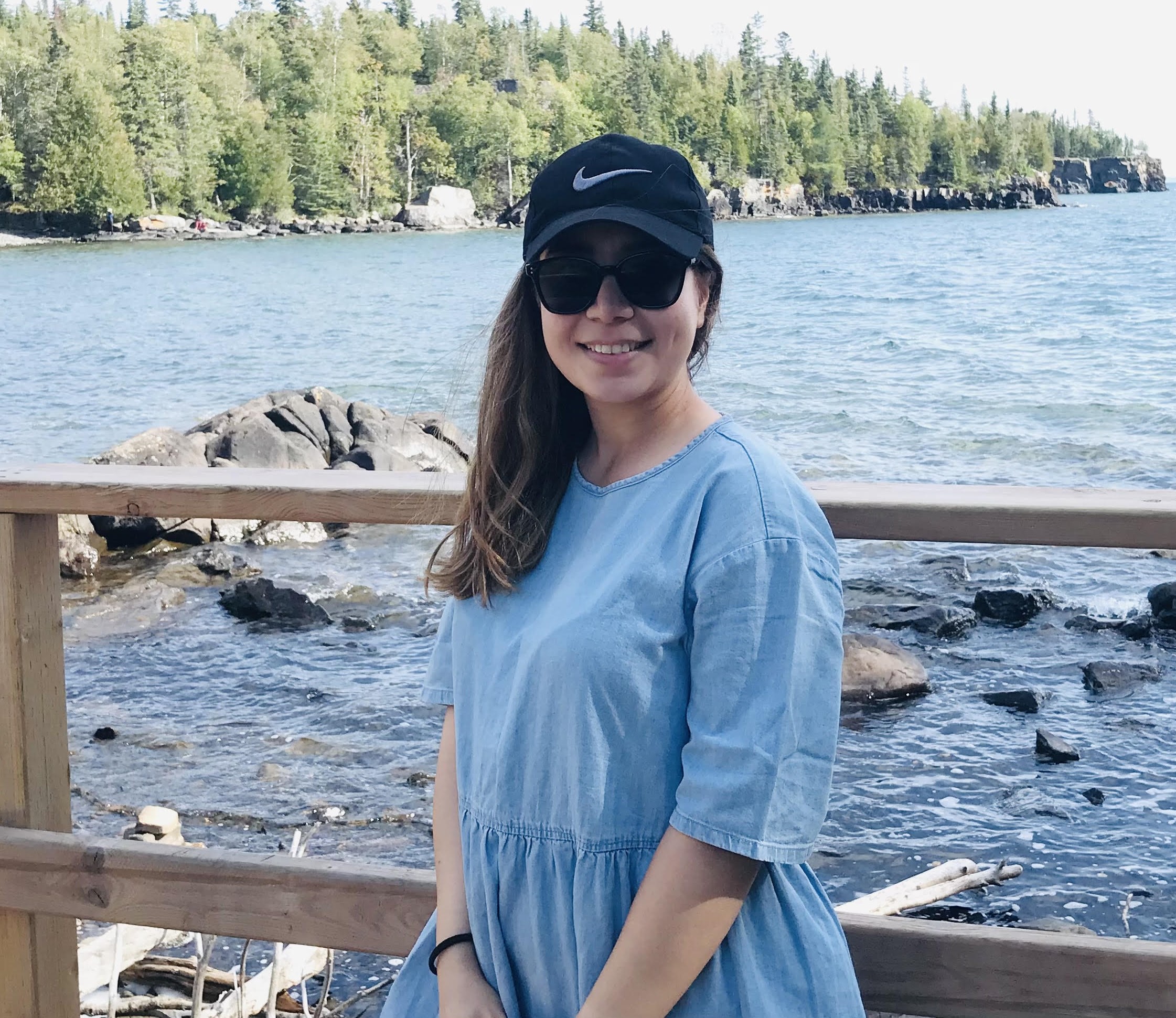Research in Action: Towards healthy, equitable and sustainable food systems
Originally published in The Chronicle Journal on Wednesday, April 3, 2024
By JULIO HELENO GOMES
An examination of the food systems in Thunder Bay and area has shone a light on the challenges as well as the opportunities of developing a healthy and equitable food system. While the Thunder Bay + Area Community Food System Report Card provided a snapshot of the situation over the last few years, the project's lead researcher sees it as another step in an effort to increase awareness and attract broader public interest on an issue that hits so close to home.

“I think of the report as within the Thunder Bay region's food systems,” says Dr. Charles Levkoe, an associate professor in Lakehead University's department of health sciences. “It's a pretty central document and I hope in a year or two it will be as relevant as it is today.”
an ongoing project that is not done and finished. It's consistently in motion, informing a lot of the work that is happening
An analysis on the region's food systems first came out in 2015. Levkoe was able to partner with the Thunder Bay + Area Food Strategy (TBAFS) for a follow-up thanks to a grant from the Social Sciences and Humanities Research Council and local donations. The resulting 79-page report was unveiled in 2023, tracking changes across seven major “pillars” or categories, including food access; forest and freshwater foods; infrastructure; and urban agriculture. (The report is available online at https://foodsystemreportcard.ca/)
“It provides a means to monitor trends and changing realities in our food system,” explains TBAFS co-ordinator Sarah Siska. “This data empowers us, as a community, to collectively determine actionable change, strengths we can build on, and areas for improvement. Highlighting successful regional initiatives shows us what is possible, setting an example for those interested in nurturing positive social, ecological and economic change in our food systems and beyond.”
Siska originally joined the project as a student. Her duties included copy editing, draft reviewing and helping with promotion through social media and community presentations. She received a master of Environmental Studies degree last summer. Having worked with TBAFS as an intern in 2022-23, she moved into the co-ordinator position in September.
The inaugural report card from 2015 was the foundation for this latest effort, bringing community members and organizations together to discuss the food system in Thunder Bay and surrounding municipalities, what it looks like and the challenges it faces. Along with drawing on data from various government sources, Levkoe and his partners also knocked on doors to gather basic information, for example, how many community gardens are out there.
 Maliheh Ghorbankhani was also involved in the project. As a master's student, she helped update the qualitative and quantitative data. And as part of her thesis research, she delved into the report's outcomes and interviewed both the participants and the users of the report card.
Maliheh Ghorbankhani was also involved in the project. As a master's student, she helped update the qualitative and quantitative data. And as part of her thesis research, she delved into the report's outcomes and interviewed both the participants and the users of the report card.
One of the most important conclusions she drew from this work is the role played by different organizations and the diverse perspectives they bring to the table.
“This inclusivity is crucial not only for comprehensively understanding different elements of a food system but also for fostering networks and advocating for more extensive transformations,” Ghorbankhani says.
With a degree in agriculture from Tehran University in Iran, Ghorbankhani's interest in agroecology and sustainable food systems brought her to Thunder Bay for further study.
“I was inspired to work on the Canadian food system, and the report card is a great resource for learning about what is happening in Northern food systems,” says Ghorbankhani, who graduated in January with a master's degree in forestry.
Along with a broad-based look at the food systems in the region, the online report card also features videos of different projects.
“That was something people really wanted to see -- not just the numbers or how much food insecurity is there in Thunder Bay,” says Levkoe, who is also the Canada Research Chair in Equitable and Sustainable Food Systems and director of the Sustainable Food Systems Lab at Lakehead University. “They wanted to see stories of organizations and groups that are actually trying to address some of this stuff.
“Part of what the report card does is show these things are connected. We can't look at them in isolation.”
The report card is meant to be interactive, allowing users to engage with different elements, whether statistics or stories.
“If people have questions, if they want to understand what's going on, the report card is meant to be a one-stop shop to be able to share,” Levkoe says. “The goal is to actually do something about it, not just say 'Oh, look, Thunder Bay has a very high food insecurity rate.' It's to actually use those numbers to do something. Which is why it's an ongoing project, not one-and-done. We want to keep updating it, learning how people are responding to the information, and try to make it even better.”
Levkoe hopes the TBAFS will release a report card every five years and that other cities will undertake a similar initiative.
Research in Action highlights the work of Lakehead University in various fields of research.


